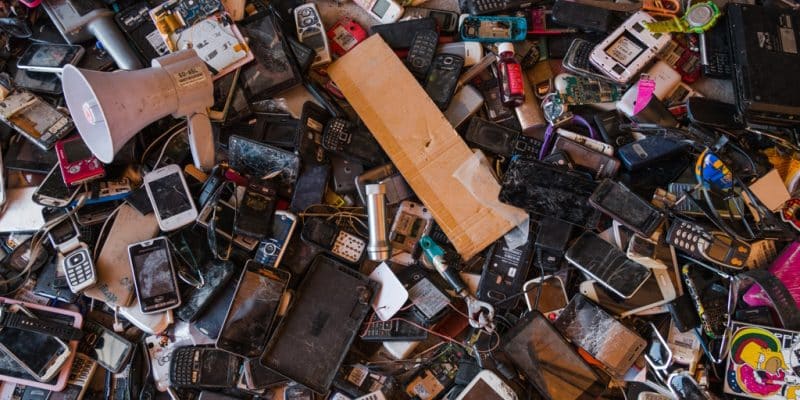As part of their CSR (Corporate Social Responsibility) initiatives in Benin, South African telecommunications multinational MTN and Swedish technology solutions provider Ericsson have announced that they have collected and recycled 123 tonnes of waste electrical and electronic equipment (WEEE) over the past two years.
In Benin, old computers and mobile phones now have a second life after use. Between 2021 and 2023, 123 tonnes of waste electrical and electronic equipment (WEEE) were collected and recycled in a number of towns, including Cotonou and the capital Porto-Novo, where 34% of Beninese people have access to the internet on a daily basis, according to the International Telecommunications Union (ITU).
The initiative was carried out as part of Swedish handset manufacturer Ericsson’s Product Take-Back Programme, in partnership with the subsidiary of South African mobile phone operator MTN. “This operation is in line with our environmental, social and governance (ESG) commitments to advance climate action and environmental preservation in Africa,” says MTN Benin, headed by Uche Ofodile.
Teams from Ericsson, which is headquartered in Stockholm, Sweden, explained that the process makes it possible “firstly to ensure that network equipment that has been taken out of service is recycled by approved recyclers, and then to obtain destruction certificates for MTN Benin that guarantee the safe disposal of the equipment”. A step forward for the circular economy in this West African country.
A threat to health and the environment
However, a report by the United Nations (UN) predicts that the volume of electronic waste in Benin will reach 74 million tonnes by 2030. That’s 20 times more than the 2.9 million tonnes the continent generated in 2019. Faced with these alarming figures, which are unlikely to fall because of the increase in sales of appliances, other countries such as Rwanda are focusing more on raising awareness among users.
Read also-BENIN: « Bric » project launched for climate resilience in seven councils
In 2022, a campaign launched by the Rwandan government in partnership with the United Nations Environment Programme (UNEP) enabled the people of Kigali to learn that smartphones contain dangerous chemicals such as lead, which has toxic effects on the human immune system and pollutes the environment (soil, groundwater).
Benoit-Ivan Wansi






